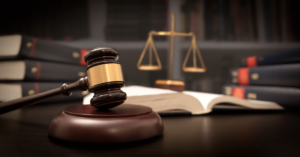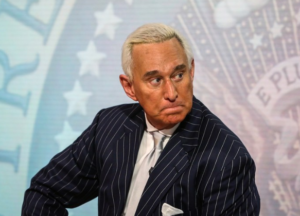Radio Law Talk Segment
College Hoops Corruption Busted
*We do not get political. We just give the facts and the law.
*Remember this is entertainment, make it interesting and applicable to the general population.
INTRO:
Ten people, including four NCAA college basketball coaches were arrested by the FBI and charged with corruption and fraud. IN addition to the coaches, managers, financial advisers, and representatives for a major sportswear company were also reportedly arrested. They are accused for accepting bribes in exchange for exerting their influence over certain players, and steering them in the direction of managers, agents, and others.
FACTS (brief, 6 sentences):
Since 2015 the FBI has been investigating the criminal influence of money on coaches and student athletes who participate in basketball governed by the NCAA. The investigation revealed numerous instances of bribes paid by athletic advisors, including financial advisors and business managers, among others, to assistant and associate basketball coaches employed by NCAA division I universities as facilitated by the couches, in exchange for those coaches exerting influence over student-athletes under their control to retain the services of the bribe-payers once the athletes enter the NBA. Four assistant coaches arrested include Chuck Person of Auburn, Emaneul Richarson of the University of Arizona, Tony Bland of the University of Southern California, and Lamont Evans of Oklahoma State. They stand accused of accepting bribes to influence players. The other six men: James Gatto director of global sports marketing at Adidas, Merl Code also of Adidas, NBA agent Christian Dawkins, The League advisor Munish Sood, former NBA official Rashan Michel who is the founder of a custom clothier for athletes called Thompson Bespoke Clothing. They have been accused of funneling up to $100,000 to a prized recruit to help secure college commitment. All 10 people were formally charged in Manhattan federal court.
ISSUES (Summarize both sides argument, both perspectives. You can use bullet points):
- Whether the 10 individuals arrested by the FBI violated federal bribery and fraud laws
- Yes
- Based on an extensive investigation by the FBI using judicially approved wiretaps, video surveillance, cash, undercover agents, and cooperating witnesses they uncovered the scope of the scandal
- The bribes took place across state lines, triggering federal charged due to interstate activity.
- Federal government financially supports the universities, and the coaches and financial advisors that conspired to commit bribery through educational programs that receive federal funds.
- The four coaches and various advisors and executives worked together to violate Title 18 US Code section 66 (a) (1) and 666 (a) (2)
- There are examples of text messages, emails and recorded conversations between advisors and assistant coaches
- Money trails showing amounts from 5,000- close to 100,000 in deals and bribes
- Since the release of the charges by the FBI the following has happened:
- Louisville placed coach Rick Pitino on https://radiolawtalk.com/wp-content/uploads/2017/08/todd-kunen-1.jpgistrative leave after learning Louisville allegedly worked with Adidas to funnel $100,000 to an unnamed recruit. There is a video tape catching the coach discussing the payment to the recruit
- Auburn suspended coach Chuck Person without pay for allegedly collecting $91,500 in bribes to push college athletes to work with Rashan Michel, the owner of a clothing store.
- Arizona suspended assistant coach Book Richardson for allegedly accepting $20,000 in bribes
- Oklahoma State suspended assistant Lamont Evans without pay for allegedly accepting $22,000 in bibs
- USC assistant Tony Bland placed on https://radiolawtalk.com/wp-content/uploads/2017/08/todd-kunen-1.jpgistrative lave for allegedly accepting $13,000 in bribes to steer players to an agent
- No
- Because this was just announced, all details have been from the prosecutors depicting events as they see
- The attorneys for the defendants may pose a variety of possible defenses, such as:
- Simple “it didn’t happen”
- That there was not “intent.” They must prove that not only did the event happen, but that the defendants acted to further the purpose of their conspiracy and criminal act
- That the conduct was merely “business as usual” and that they were only engaging in common place conduct
- Portray cooperting witnesses as untruthful and unreliable
- Object to the admissibility of certain kinds of evidence
- Yes
LAW (with references, no need for blue book citations. This is the most important part, make sure the attorneys can answer any questions from callers on the topic. You can use bullet points):
- Count One (Bribery Conspiracy)
- Violated TITLE 18, United States Code, Section 666 (a) (1)(B) and 666 (a) (2)
- (1)Whoever, if the circumstance descripted in subsection (b) of this section exists-
- (B) corruptly solicits or demands or the benefit of any person, or accepts or agrees to accept, anything of value form any person, intending to be influenced or rewarded in connection with any business, transaction, or series of transactions of such organization, government, or agency involving anything of value of $5,000 or more
- (2) corruptly gives, offers, or agrees to give anything of value to any person, with intent to influence or reward an agent of an organization or of a State, local or Indian tribal government, or any agency thereof, in connection with any business, transaction, or series of transactions of such organization, government, or agency involving anything of value of $5,000 or more.; shall be fined under this title, imprisoned not more than 10 years, or both.
- (1)Whoever, if the circumstance descripted in subsection (b) of this section exists-
- Count Two (Solicitation of Bribes and Gratuities)
- TITLE 18, United States Code Sections 666 (a) (1) (b) and 2.
- 666- See above
- Count Three (Conspiracy to Commit Honest Services Fraud)
- TITLE 18, United States Code sections 1343 and 1346
- 1343 Fraud by wire, radio, or television
- Whoever, having devised or intending to devise any scheme or artifice to defraud, or for obtaining money or property by means of false or fraudulent pretenses, representations, or promises, transmits or causes to be transmitted by means of wire, radio, or television communication in interstate or foreign commerce, any writings, sign, signals, pictures, or sounds for the purpose of executing such scheme or artifice, shall be fined under this title or imprisoned not more than 20 years, or both. If the violation occurs in relation to, or involving any benefit authorized, transported, transmitted, transferred, disburse, or paid in connection with, a presidentially declared major disaster or emergency, or affects a financial institution, such person shall be fined not more than $1,000,000 or imprisoned not more than 30 years, or both.
- 1346 Definition of “scheme or artifice to defraud”
- For the purposes of this chapter, the term “scheme or artifice to defraud” includes a scheme or artifice to deprive another of the intangible right of honest services.
- Count Four (Honest Services Wire Fraud)
- Title 18, United States Code Section 1343, 1346, 1349 and 2
- 1343 – see above
- 1346- see above
- 1349 Attempt and conspiracy
- Any person who attempts or conspires to commit any offense under this chapter shall be subject to the same penalties as those prescribed for the offense, the commission of which was the object of the attempt or conspiracy.
- 2 Principals
- (a) Whoever commits an offense under the United States or aids, abets, counsels, commands, induces or produces its commission, is punishable as a principal.
- (b) Whoever willfully causes an act to be done which if directly performed by him or another would be an offense against the United States, and is punishable as a principal.
- Count Five (Conspiracy to Commit Wire Fraud)
- TITLE 18, United States Code Section 1343
- 1343- See above
- Count Six (Travel Act Conspiracy)
- Title 18, United States Code Section 1952 (a) (1) and (a) (3)
- 1925 – Interstate and foreign travel or transportation in aid of racketeering enterprises
- (a) Whoever travels in interstate or foreign commerce or uses the mail or any facility in interstate or foreign commerce, with intent to-
- (1) distribute the proceeds of any unlawful activity
- (3) otherwise promote, manage, establish, carry on, facilitate the promotion, management, establishment, or carrying on, of any unlawful activity.
- (a) Whoever travels in interstate or foreign commerce or uses the mail or any facility in interstate or foreign commerce, with intent to-
- 1925 – Interstate and foreign travel or transportation in aid of racketeering enterprises
- Title 18, United States Code Section 1952 (a) (1) and (a) (3)
- TITLE 18, United States Code Section 1343
- Title 18, United States Code Section 1343, 1346, 1349 and 2
- 1343 Fraud by wire, radio, or television
- TITLE 18, United States Code sections 1343 and 1346
- TITLE 18, United States Code Sections 666 (a) (1) (b) and 2.
- Violated TITLE 18, United States Code, Section 666 (a) (1)(B) and 666 (a) (2)
DETAILED FACTS (tell the story):
On Tuesday federal investigators in New York released complaints depict of a thriving black market for teenage athletes, one in which coaches, agents, financial advisers and shoe company employees trade on the trust of players and exploit their inability to be openly compensated because of NCAA rules. The arrests included four division I assistant coaches and the global marketing director for Adidas basketball. Three complaints were relapsed, showing two broad schemes. One involved bribing four assistant coaches at Arizona, Auburn, Oklahoma state and Southern California, to persuade players to send business to certain financial advisers once they turned professional. The other involved efforts to secretly funnel money from Adidas to three players and their families in exchange for the players commitments to play at two Adidas-sponsored college programs and to later sign sponsorship deals with the company once they turned pro. Adidas executive Jim Gatto was in an agreement to pay about $100,000 to the family of a heavily recruited high school player to steer him to a particular college.
In the first scheme, one complaint claimed that Chuck Person (associate head coach at Auburn) abused his position to solicit and obtain bribes from a financial adviser and business manger for professional athletes. He agreed to direct certain players from his program to the advisor when they players joined the NBA. He accepted a total of $91,500 in the case, and is accused of passing around $18,000 on to families of two athletes.
The other complaint charged the other three assistant coaches with solicitation of bribery for accepting payments to steer players. Coaches were Lamont Evans (Oklahoma state,) Emanuel Richardson (Arizona) Tony Bland (USC.) All three, as well as Person have been suspended by their programs.
The cases were brought with the aid of a cooperating witness against whom the Securities and Exchange Commission had brought securities charges, including misusing professional athlete’s funds. Two undercover FBI agents posing as financial advisers were also involved. The investigation used judicially approved wiretaps, and began in 2015.
The complaints announced Tuesday also included tantalizing clues indicating that what was alleged is merely the tip of the iceberg.
OTHER FACTS (interesting facts, related facts, trivia, etc.):
ARTICLE LINKS (so we can print them out):
http://www.al.com/sports/index.ssf/2017/09/dirty_playbook_how_nba_legend.html
https://www.nytimes.com/2017/09/26/sports/basketball/chuck-person-auburn-ncaa.html?mcubz=3
https://www.nytimes.com/2017/09/26/sports/ncaa-adidas-bribery.html
MEDIA (less than a 2 minutes FUNNY sound bite. You can include a couple of options. We realize that for some topics there is not much):
First 2 Minutes:




